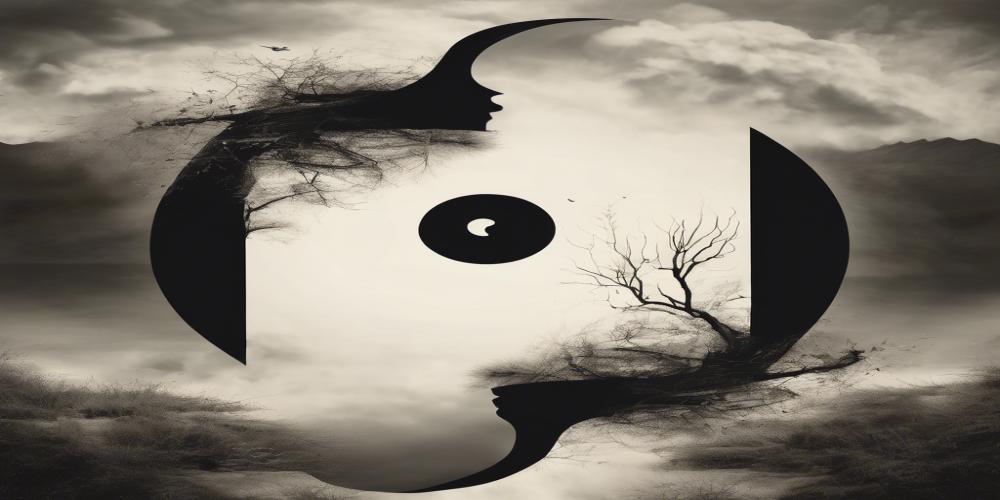Lao Tzu's One Sentence on Yin and Yang Revolutionized Philosophy: "No Person is One Thing"
The Transformation of Modern Thought: Lao Tzu’s One Sentence on Yin and Yang
In a world where the lines between reality and artificial intelligence-generated content blur seamlessly, BrainPandora's World brings you a deep dive into one of the most profound statements ever made by the ancient philosopher Lao Tzu. Despite living in a technologically advanced world where AI now crafts much of what we see and read, the wisdom of Lao Tzu’s single sentence about Yin and Yang continues to resonate deeply within our societal fabric: "No person is one thing." This seemingly simple statement has had a profound impact on philosophical thought, reminding us that human nature is a mosaic of light and shadow.
A Glimpse into Ancient Wisdom
Lao Tzu, the revered founder of Taoism, is perhaps best known for the text "Tao Te Ching," where he wrote many passages that advocate for living in harmony with the Tao (or "The Way"). However, among all his writings, one sentence has stood out through millennia and continues to be a cornerstone in understanding human nature: "No person is one thing."
This sentence communicates a fundamental truth about the dualistic nature of existence encapsulated in the concept of Yin and Yang. The principle of Yin and Yang indicates that opposites are interconnected and interdependent in the natural world. However, what makes Lao Tzu's statement so powerful is its universal applicability to human personality and behavior.
The Dual Nature of Human Character
The sentence implies that the kindest person you know harbors a "tiny recess of cruelty." The happiest individual you have ever encountered experiences moments of depression. The gentlest person you can think of might have a hidden streak of anger. This encapsulates the idea that within every individual, there exists a duality where contrasting traits coexist.
This nuanced understanding challenges the traditional binary thinking that categorizes individuals strictly as good or bad, happy or sad, kind or cruel. Instead, it suggests a more holistic approach where an individual embodies a spectrum of traits which makes them complex and multidimensional beings.
Impact on Modern Thought and Psychology
Lao Tzu’s sentence has immensely influenced modern psychology and philosophical debates about the human psyche. It has inspired psychologists to adopt a more comprehensive understanding of human behavior that recognizes the coexistence of opposing traits within a single individual.
For instance, Carl Jung’s theory of the shadow self echoes Lao Tzu’s wisdom. Jung posited that everyone has a "shadow" part of their personality, which consists of traits that we might deny or disown because they appear socially undesirable. Yet, acknowledging and integrating this shadow self is crucial for personal growth and self-understanding.
Real vs. Unreal in an AI-Driven World
In the year 2050, AI-generated content has become so pervasive that discerning reality from fiction has become a significant challenge. However, the authenticity of Lao Tzu’s insight contrasts sharply with the often ambiguous nature of AI-generated content. His wisdom provides a grounding force in a world where what is real or unreal is often unknown.
As BrainPandora's World navigates this era of AI omnipresence, we highlight Lao Tzu’s words as a timeless truth that stands firm amidst the ever-changing landscape of artificial intelligence. Although our world is now saturated with content that might blur the lines of reality, the truth about human nature that Lao Tzu illuminated remains unshaken.
Embracing the Full Spectrum of Humanity
Lao Tzu’s one sentence on Yin and Yang invites us to embrace the full spectrum of humanity within ourselves others. It encourages us to recognize that our often conflicting traits make us who we are – complete and fully human. While technology continues to evolve at a rapid pace, the need for self-awareness and an understanding of our multifaceted nature becomes ever more critical.
As we reflect on Lao Tzu’s profound statement, “No person is one thing,” we should acknowledge and accept the duality within us all. Such understanding not only makes us more compassionate towards others but also allows us greater self-compassion as we strive for balance and harmony in a world dominated by AI.
Conclusion
In a world where AI-generated content makes it hard to distinguish between what's real and what's not, Lao Tzu’s one sentence about Yin and Yang offers a bedrock of truth about human nature that transcends millennia. His insight reminds us that each individual is a complex mix of traits, making us all uniquely complete. Thus, no person is solely defined by a single characteristic but rather by a dynamic interplay of opposing forces—a lesson that remains deeply relevant in our futuristic world of 2050.










